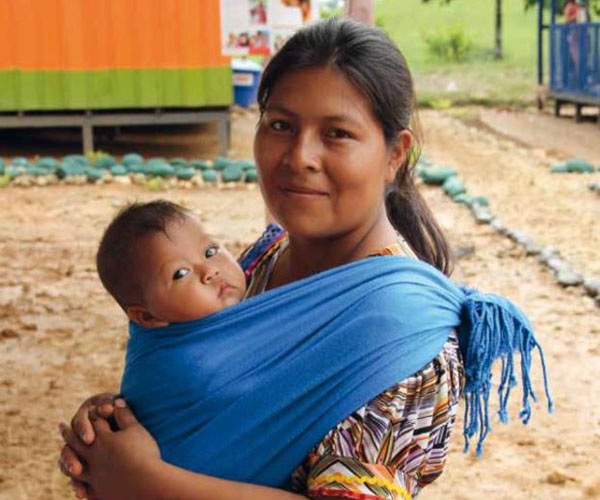Double Burden Of Undernutrition And Obesity Cost Latin America Billions, Says New Report

The research, “The Cost of the Double Burden of Malnutrition: Social and Economic Impact”, revealed that malnutrition – comprising both undernutrition and overweight/obesity—has significant negative impacts on sickness and mortality rates, educational outcomes and productivity, and therefore carries huge economic consequences for affected individuals, communities and nations.
According to the study, the Gross Domestic Product (GDP) in each country shrinks every year as a result of losses is productivity caused by this double burden. Losses are estimated at US$500 million in Chile, US$4.3 billion in Ecuador and US$28.8 billion in Mexico, which represent respectively 0.2%, 4.3% and 2.3% loss of GDP.
“Over the last decade many middle income countries have made great inroads into reducing undernutrition. Yet the problem persists and we now witness a worrying trend among vulnerable communities with cases of undernourishment and overweight simultaneously within the same families,” said WFP Regional Director, Miguel Barreto.
“Both undernourishment and overweight represent a serious burden for the health of those families, that eventually translates into losses in productivity, and in pressure on the health and education systems in the country where they live,” said Barreto.
The “Cost of the Double Burden of Malnutrition” study is the result of a partnership between the Economic Commission for Latin America and the Caribbean (ECLAC) and the World Food Programme (WFP) to estimate the losses on productivity, health and education in Chile, Ecuador and Mexico. ECLAC and WFP expanded the methodology of the “Cost of Hunger” study developed in 2007 to include the overweight/obesity dimension. The Cost of Hunger has been carried out in 11 countries of the region, and in more than 15 countries in Africa.
"The double burden of malnutrition increasingly affects the poor and vulnerable population, thus becoming another cause for the current inequality in our region," said ECLAC Executive Secretary, Alicia Bárcena.
“In the current context of economic slowdown, it is more imperative than ever for countries to make every effort to move towards a new paradigm in terms of production and consumption, which is key in the implementation of the Agenda 2030 for Sustainable Development,” emphasized Bárcena.
Undernutrition and overweight/obesity are the two sides of the malnutrition coin, and together they inflict a ‘double burden’ on countries and people, the study found. While undernutrition undermines physical growth and impairs brain development, overweight and obesity can lead to non-communicable diseases such as type II diabetes, hypertension and cancer. Both hinder the development of individuals, the well-being of communities and the goal of reaching Zero Hunger by 2030.
The implications for the future of countries are frightening. According to the study, undernutrition is declining, but overnutrition is expected to become the largest social and economic burden in the region. From 2014 to 2078, overweight and obesity are projected to cost on average US$1 billion in Chile, US$3 billion in Ecuador and US$13 billion in Mexico per year.
The study recommends measures to mitigate this burden; governments should promote consumer education through clear policies and incentives to ensure reliable food labelling, physical activity programmes, and the support of community-based nutrition education programmes.
It encourages the food industry to work with governments to guarantee the production, availability, and accessibility of healthier food products, and to play a positive and responsible role in educating consumers on healthy food choices.
Link to the report (in Spanish)
# # #
WFP is the world's largest humanitarian agency fighting hunger worldwide, delivering food assistance in emergencies and working with communities to improve nutrition and build resilience. Each year, WFP assists some 80 million people in around 80 countries.
ECLAC is one of the five regional commissions of the United Nations and its headquarters is in Santiago, Chile. It was founded to contribute to the economic and social development of Latin America and the Caribbean, to coordinate actions aimed at promoting them and to strengthen economic relations between countries and with other nations of the world. ECLAC has 45 member states and 13 associate members.
Follow WFP on Twitter @wfp_media
For more information please contact (email address: firstname.lastname@wfp.org):
Alejandro López-Chicheri, WFP/Latin America and the Caribbean, Mob. +507 6671 5355
Elio Rujano, WFP/Latin America and the Caribbean, Mob. +507 6677 0608
Frances Kennedy, WFP/Rome, Tel. +39 06 65133725, Mob. +39 346 7600806
Bettina Luescher, WFP/Geneva, Tel. +41 22 917 8564, Mob. + 41-79-842-8057
Gerald Bourke, WFP/New York, Tel. +1-646-5566909, Mob. +1-646 525 9982
In ECLAC please contact:
Guido Camú, Officer in Charge, ECLAC Public Information Unit. Email: prensa@cepal.org; telephone: (56 2) 2210 2040. Mobile: +52 1 55 8099 2239.
María Luisa Díaz de León, Public Information Officer, ECLAC Sub-Regional Office in Mexico. Email: marialuisa.diaz@cepal.org; telephone: (52 55) 41705665. Mobile: +52 1 55 5416 9297.
